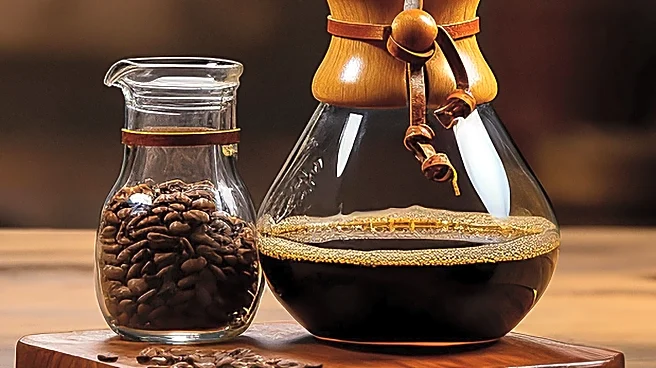What's Happening?
A mathematical sequence from the 19th century, known as the Thue-Morse sequence, provides a solution for fair allocation of players to teams and can also address issues like uneven coffee brewing. The
sequence, originally studied by Eugène Prouhet and later expanded by Axel Thue and Marston Morse, ensures fairness by alternating the order of selections. This method is used in sports competitions, such as tennis tie-breaks and football penalty shoot-outs, to maintain balance and fairness. The sequence can also be applied to evenly distribute coffee strength when pouring from a pot.
Why It's Important?
The application of the Thue-Morse sequence in team selection and coffee brewing highlights the broader significance of mathematical solutions in everyday problems. By ensuring fairness in team sports, it can improve competitive balance and satisfaction among participants. In the context of coffee brewing, it offers a practical solution to a common issue, demonstrating the versatility of mathematical concepts in solving real-world problems. This approach can be extended to other areas where equitable distribution is crucial.











